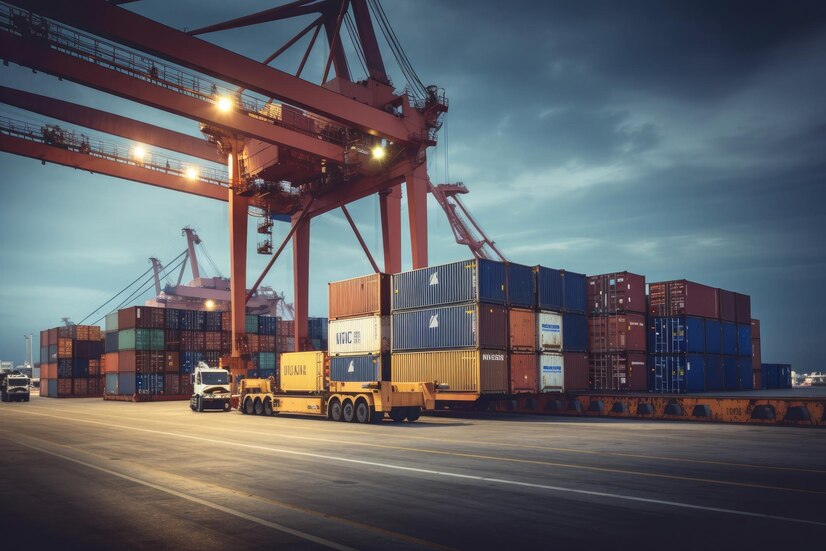When talking about shipping, there are many delivery options out there. The shipping terms can be overwhelming. In this informative blog post, we aim to clarify the confusion by shedding light on the differences between DDP and other prevalent shipping terms. By delving into these, we want to educate you with the knowledge needed to make informed decisions for your business, ensuring that you choose the most suitable and cost-effective shipping solution for your specific needs and circumstances.

Understanding DDP Shipping
DDP, short for Delivered Duty Paid is a widely used shipping term in logistics. When opting for DDP shipping, one common question arises: how much does DDP shipping cost? This shipping arrangement places the responsibility on the seller to cover all expenses associated with delivering products to the buyer’s specified location. This includes not only transportation costs but also customs duties, taxes, and any additional charges. DDP stands out from other shipping terms as it relieves buyers of the responsibility for handling customs procedures. Instead, sellers or their chosen freight forwarders manage all aspects of customs clearance, ensuring a seamless and comprehensive shipping process.
The Advantages of DDP Shipping
The benefit of opting for DDP over other shipping options is convenience. With DDP shipping, sellers take care of all tasks and expenses on behalf of the buyer. This implies that once you make a purchase, you can relax while your items are delivered to your doorstep without any hassle.
Moreover, as a buyer who imports goods, choosing DDP shipping gives you control over costs since all duties and taxes are determined upfront at the time of purchase. This eliminates the possibility of customs charges when the goods arrive in your country.
Explanation of Common Shipping Terms
While DDP offers convenience and predictability, other common shipping terms are used in international trade. It’s essential to understand them so that you can select the term that best suits your requirements:
EXW (Ex Works)
In this shipping term, the seller makes the goods available at their premises or another agreed-upon location. The buyer then takes responsibility for arranging transportation and handling export customs processes and import procedures.
FOB (Free on Board)
With FOB shipping, the seller ensures that the goods are delivered onto a vessel at a port. From that point, it is the buyer’s responsibility to incur costs and arrange for transportation of the goods.
CPT (Carriage Paid To)
Under CPT shipping terms, the seller must ensure that goods are delivered to a carrier or another designated destination. Once the delivery is completed, it becomes the buyer’s responsibility to arrange and cover the costs for transportation beyond that point.
CIF (Cost Insurance & Freight)
In CIF shipping terms, not only is the seller responsible for delivering goods to a specific destination, but they also need to arrange insurance coverage against any potential damage or loss during transit. However, it’s important to note that only basic insurance coverage is usually included.
Factors to Consider When Choosing Shipping Terms
When deciding between DDP and other shipping terms, there are factors to take into account, such as cost control, ease of management expertise needed for customs clearance, and time constraints. Let’s take a closer look:
Cost Control
DDP provides buyers with clarity on expenses since costs like customs duties and taxes are already included in the purchase price. If managing costs is a priority or if you have limited funds upfront for payment, including duties/taxes, when placing an order, then DDP may be a good option.
Ease of Management
DDP shipping offers convenience by taking care of all logistics-related tasks. This can be particularly beneficial if you have limited experience in trade or lack resources to manage customs activities.
Expertise Needed for Customs Clearance
Some countries have intricate rules and regulations on customs that require specific knowledge. If your importing country has a customs clearance process or requires expertise in handling these formalities and tasks relying on professionals, DDP can help save you both time and stress.
Time Constraints
If timely delivery is crucial for your business, considering shipping terms such as FOB or ex-works might be more suitable. By taking control of the logistics of the shipment, you can select the route and transportation options based on your requirements.
Conclusion
Knowing the distinctions between DDP and other commonly used shipping terms is essential for making better business decisions related to shipping. Whether you prioritize convenience, cost control, or desire influence over the shipment process, each term offers its advantages and considerations to keep in mind. By considering the factors discussed above and taking into account your needs and constraints, you can make a well-informed decision that aligns perfectly with your business requirements.







Add Comment